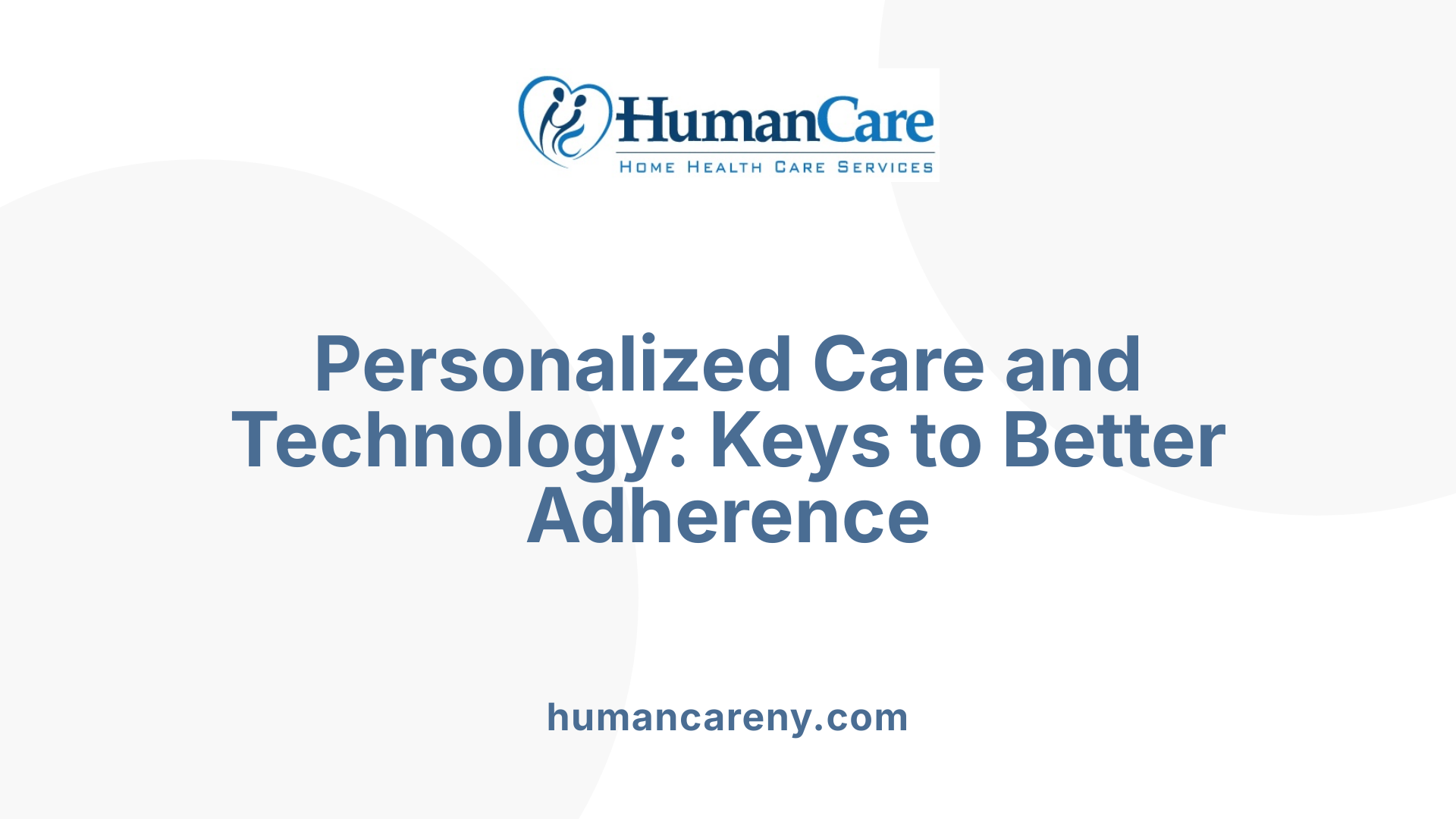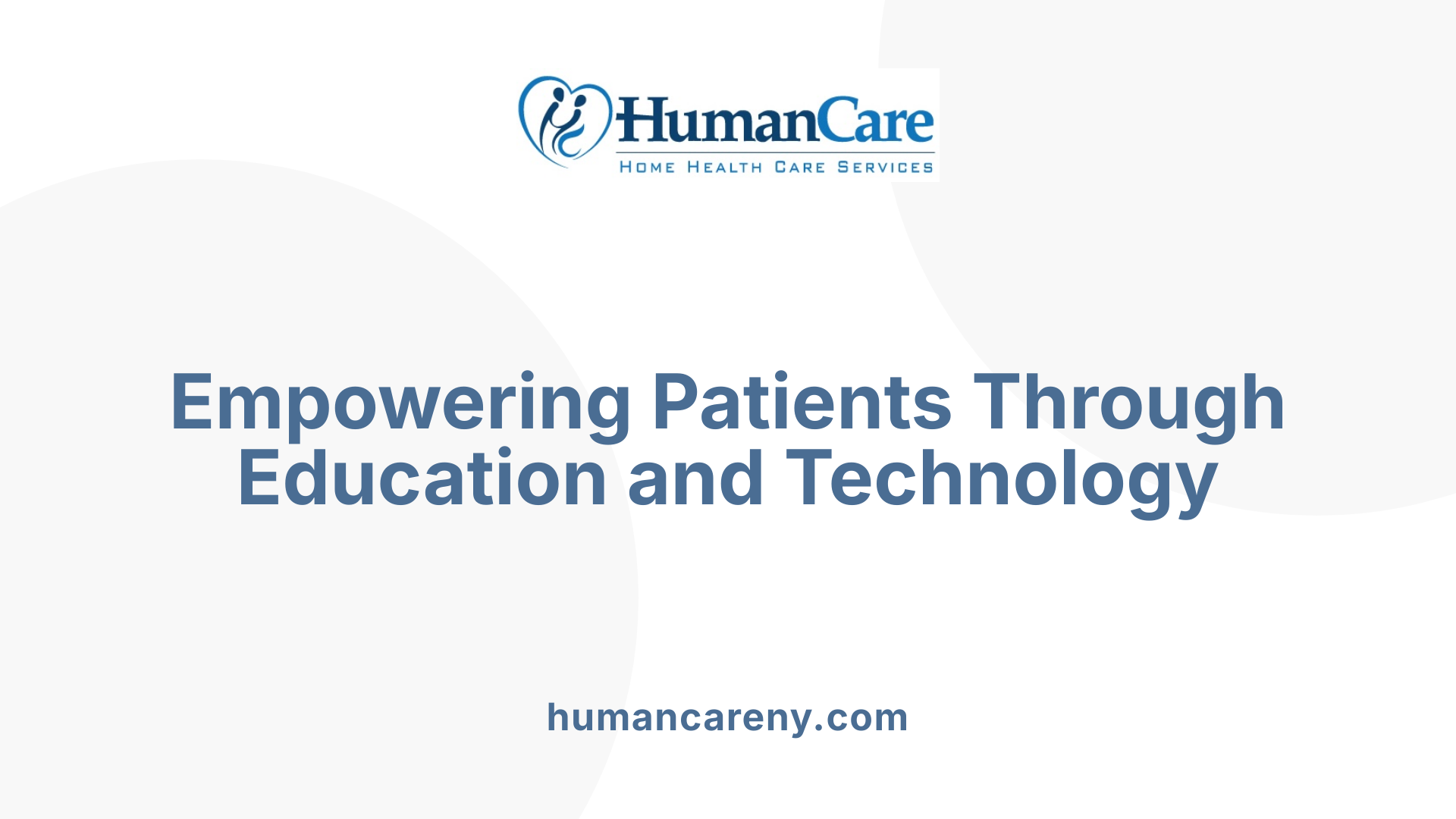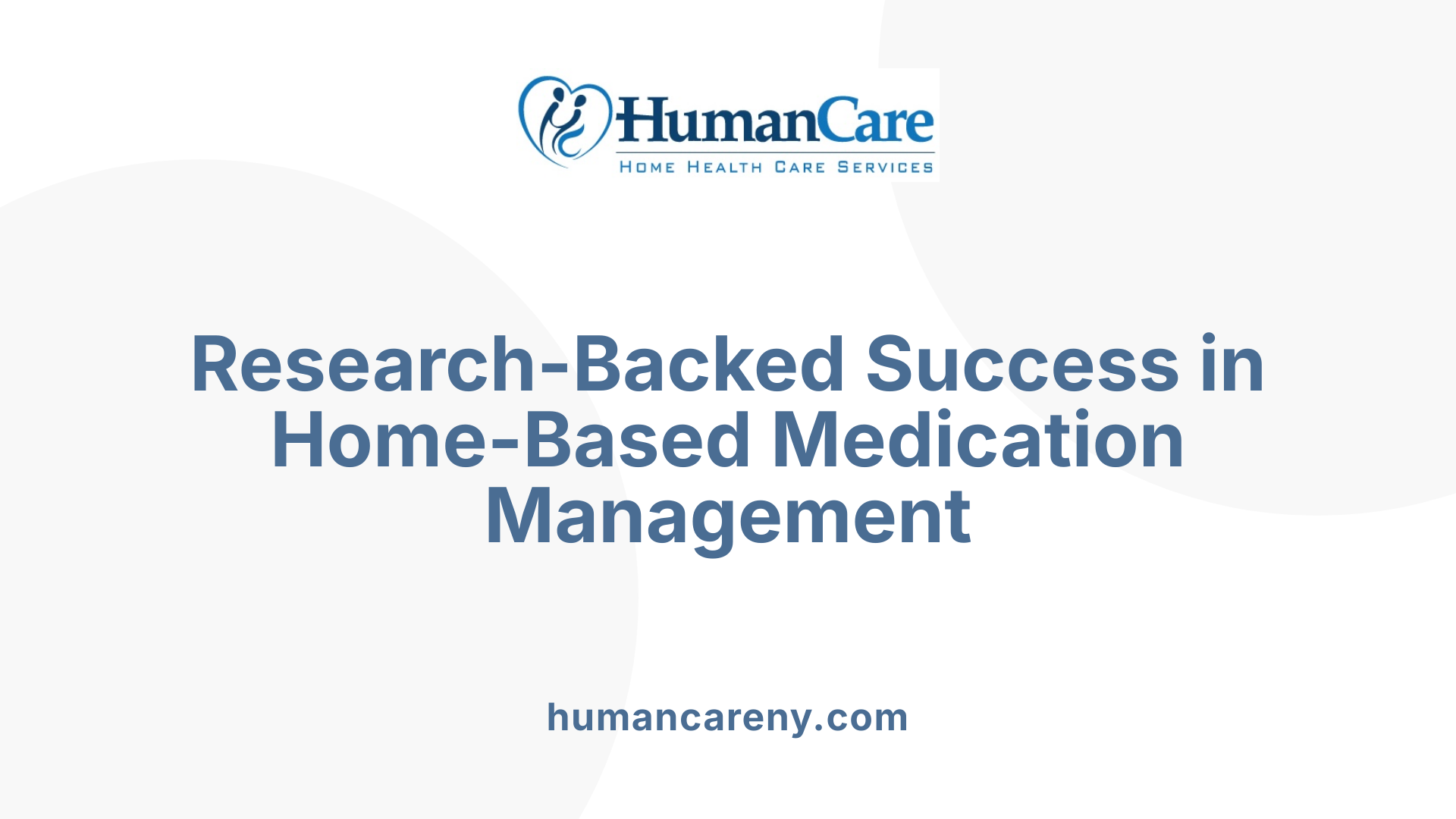Understanding the Critical Role of Home Health Care in Medication Adherence
Medication adherence remains a significant challenge, especially among older adults and those managing chronic conditions. Nonadherence can lead to severe health consequences, increased hospitalizations, and skyrocketing healthcare costs. Home health care emerges as a vital intervention, providing personalized support that fosters better medication management. This article explores how home health care services improve medication adherence by utilizing tailored strategies, professional expertise, and innovative technologies to ensure patients follow their prescribed regimens effectively.
Personalized Assistance and Monitoring by Healthcare Professionals

How does home health care support medication adherence?
Home health care plays a vital role in helping older adults and patients with chronic conditions manage their medications effectively. Nurses conduct initial assessments to gather comprehensive medication lists and understand individual needs. During regular visits, they observe medication-taking behaviors and identify any signs of nonadherence, such as missed doses or improper timing.
Nurses provide hands-on assistance with medication intake, helping patients organize their pills using dispensers or charts, and reminding them of doses through personal interaction or technological tools like alerts. They also educate patients about why adherence matters, explaining the importance of taking medications at the correct times to maximize benefits and minimize side effects.
Building a trusting relationship encourages patients to openly discuss difficulties, doubts, or side effects they experience. This open communication allows nurses to help find practical solutions tailored to individual circumstances, whether by adjusting schedules or coordinating with physicians for medication changes.
Technology further enhances this support. Electronic medication dispensing systems with reminder features have proven effective in improving adherence, as seen in recent studies where adherence rates reached over 98% over six months. These systems provide visual and audio alerts, organize medication schedules, and even allow early dispensing, encouraging consistent medication routines.
Furthermore, home health providers monitor medication supplies to prevent missed doses due to exhaustion or expiration, coordinate with other healthcare providers to update prescriptions, and ensure the ongoing appropriateness of medication regimens. This comprehensive approach helps maintain continuity of care, reduces hospitalizations due to nonadherence, and promotes better health outcomes for patients managing complex regimens.
Strategies and Interventions for Improved adherence

What strategies and interventions are used in home health care to improve medication adherence?
Home health care professionals utilize a range of approaches to support patients in taking their medications correctly and consistently. Patient education is foundational; nurses and healthcare providers tailor information to individual needs, explaining the purpose of medications, potential side effects, and the importance of adherence. Simplifying medication regimens, such as recommending once-daily dosing or combining medications into fewer pills, makes adherence more manageable.
To help patients follow their prescribed schedules, providers often employ practical tools like medication organizers, alarms, and advanced electronic medication dispensing systems. These aids serve as visual or auditory reminders, reducing forgetfulness.
Behavioral techniques, including motivational interviewing, are used to address patients’ beliefs and concerns about their medications. Face-to-face visits allow healthcare professionals to identify barriers, provide encouragement, and reinforce positive behaviors.
Technology plays a crucial role as well. Electronic reminders, telemonitoring, and ongoing support via phone calls or mail can improve adherence. For example, in recent studies, in-home electronic medication dispensing systems increased adherence rates significantly.
System-level strategies involve fostering teamwork among healthcare providers, ensuring easy access to care, and coordinating with primary physicians to review and adjust medication plans regularly. These comprehensive approaches create a supportive environment that encourages patients to manage their medications effectively.
The Impact of Technology on Medication Management
How is technology used in home health care to ensure proper medication use?
Technology has become a crucial component in supporting medication adherence in home health care settings. Various tools and systems are employed to help patients take their medications correctly and on time.
One popular solution is electronic medication dispensing systems (MDS). These devices organize medications and provide audio-visual reminders to prompt timely intake. In a recent pilot study, MDS systems achieved an average adherence rate of over 98%, significantly higher than traditional methods. Their ability to organize pills, send alerts, and dispense medications early supports consistent medication routines.
Reminders and alerts are also accessible through smartphone apps, smart pill bottles, and calendar-based systems. These digital reminders help reduce forgetfulness, a common reason for nonadherence.
Remote health monitoring and telehealth further enhance medication management by allowing healthcare providers to track vital signs, monitor symptoms, and review medication responses in real-time. Wearable devices and remote sensors continually record health parameters, triggering alerts if abnormalities are detected. Such proactive measures enable early intervention, reducing adverse events.
Communication between patients and providers is strengthened through virtual consultations and shared health records. This coordinated approach ensures accurate medication reviews, timely adjustments, and detailed education on medication use.
Overall, technology solutions, including electronic dispensing systems, reminder applications, and remote monitoring, support improved medication adherence and personalized care for home care patients.
Evidence Supporting Home Health Care in Improving Medication Adherence

What is the evidence supporting the effectiveness of home health care in improving medication adherence?
Research indicates that home health care significantly boosts medication adherence among older adults and those with chronic illnesses. Interventions led by nurses, such as face-to-face visits, help patients manage their medications better by providing personalized education, support, and reminders. These visits foster trust and open communication, making it easier for patients to discuss adherence challenges.
One notable example is the use of in-home electronic medication dispensing systems (MDS). A recent randomized controlled trial showed that patients using MDS achieved an adherence rate of approximately 98.35% over six months, compared to 91.17% in control groups. These systems remind patients through audio and visual alerts, organize medications, and enable early dispensing, which collectively improve compliance.
In addition to technological solutions, home visits by multidisciplinary teams have proven effective. Such visits can help patients develop tailored medication routines, monitor their responses, and address side effects promptly. Efforts like these have led to increased adherence and reduced emergency visits or hospitalizations in patients with conditions like asthma, COPD, and hypertension.
While the research quality varies, the overall evidence supports the idea that home health care approaches—especially when integrating technology and personalized support—result in better medication-taking behaviors. These improved behaviors often translate into better clinical outcomes, such as improved blood pressure control and fewer healthcare complications.
Impact on clinical outcomes
Patients adhering more strictly to medication regimens tend to experience better management of their chronic diseases. For example, consistent medication use helps control blood pressure in hypertensive patients and improves glycemic control in diabetics. This, in turn, reduces the risk of severe complications like strokes, heart attacks, or kidney failure.
Home health care also helps prevent hospital readmissions and emergency visits by catching issues early, such as side effects or incorrect medication use. Improved adherence reduces healthcare costs and enhances quality of life, demonstrating the value of home-based interventions.
Technological efficacy
Electronic medication systems and other digital tools have shown promising results. They provide timely reminders, organize pills, and enable early dispensing, leading to higher adherence rates. Such technology is especially beneficial for older adults who may forget doses or find managing multiple medications complex.
Studies confirm that technology-supported approaches are effective long-term strategies to foster medication adherence in community-dwelling older adults with chronic diseases. Combining technology with personal visits and education maximizes benefits, offering a comprehensive solution to medication management challenges.
Optimizing Medication Outcomes for Better Quality of Life
In conclusion, home health care plays a foundational role in enhancing medication adherence among vulnerable populations. Through personalized support, targeted interventions, technological integration, and strong professional-patient relationships, it addresses many barriers that lead to nonadherence. Continued research and innovation in this field promise to further improve health outcomes, reduce healthcare costs, and enhance patients’ quality of life. Emphasizing the importance of coordinated, patient-centered care will ensure that medication management remains a priority for healthcare providers looking to optimize treatment success in community settings.
References
- Home Care Patients' Experiences with Home Care Nurses' Support ...
- Home Care Patients' Experiences with Home Care Nurses' Support ...
- Benefits of Home Health Care for Medication Management
- Medication adherence support of an in-home electronic medication ...
- How Home Health Care Can Make Medication Adherence Easier for ...
- Home Care: Helping Patients with Medication Management
- Medication Adherence: Taking Your Meds as Directed
- How Does Home Health Care Help Seniors Achieve Medication ...



